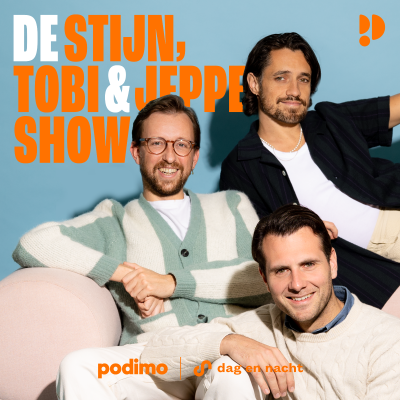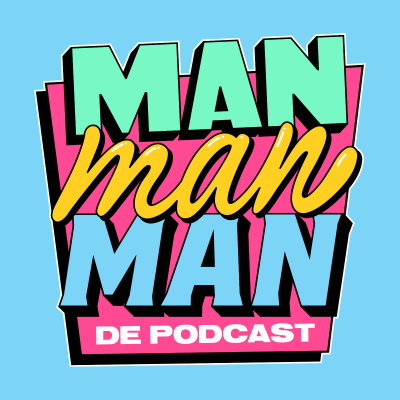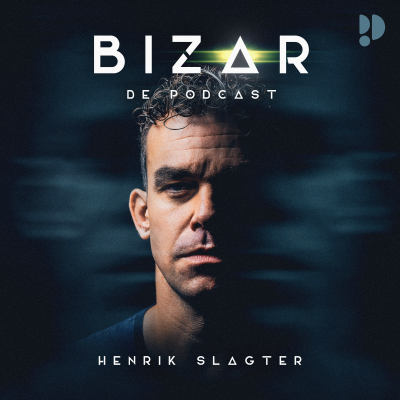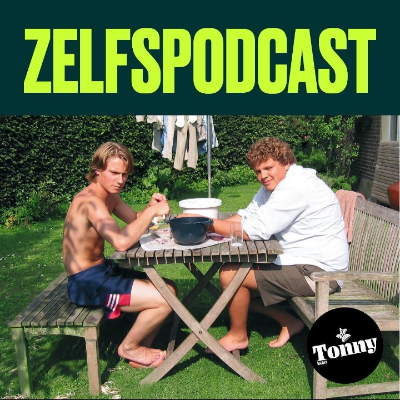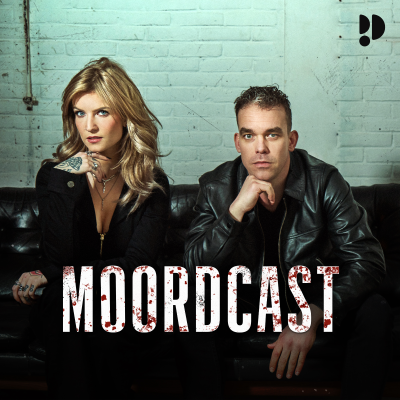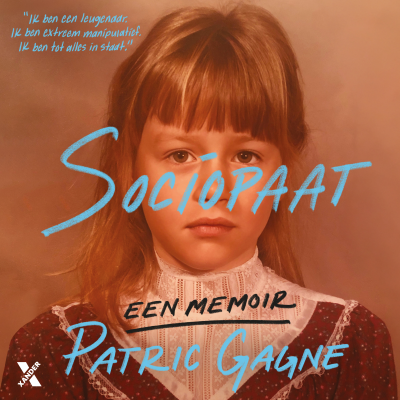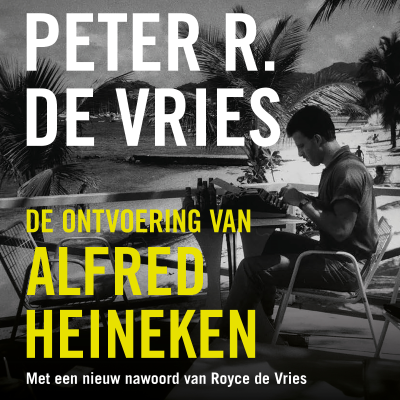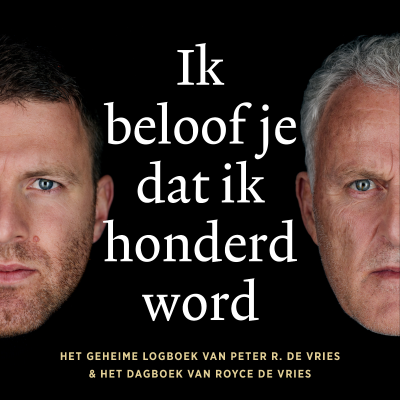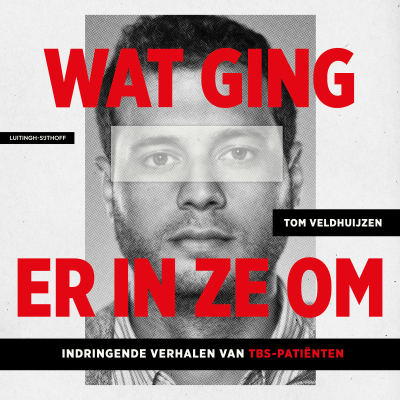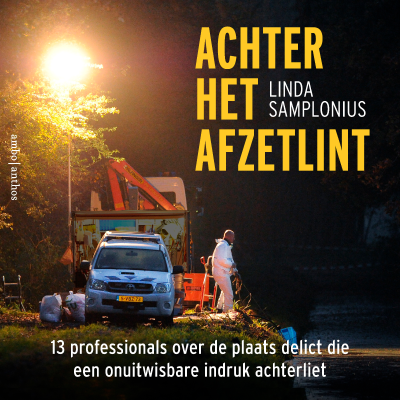Greiner Talks
Podcast door Greiner AG
Climate change, plastic pollution, social inequalities – Greiner Talks is our podcast about sustainability and transformation. As one of the world´s leading suppliers of plastics and foam solutions, Greiner is more committed than ever to transformative business change. Accordingly, Alexander Berth from the Greiner People & Culture team confers with experts from around the world, in order to share their perspectives and knowledge.
Probeer 7 dagen gratis
€ 9,99 / maand na proefperiode.Elk moment opzegbaar.
Alle afleveringen
42 afleveringenIn a country like Austria, with a functioning healthcare system and good public infrastructure, one might think that social justice is already well advanced. But Susanne Hamscha takes a more nuanced view: “We see people in our society who have a harder time, who are less privileged – whether in terms of access to education or the labor market. Only when opportunities are truly distributed fairly can we speak of a fair society.“ This is not just a geographical issue, such as Europe, but also concerns structural inequalities within our society. Those who only look at diversity superficially often overlook the deeper causes of inequality – and thus ignore enormous potential. When people talk about sustainability, many initially think of ecology. But without social sustainability, any environmental strategy remains incomplete. After all, only a society in which people can live healthy, safe lives with equal rights is sustainable in the long term. Companies have an enormous influence on who gets opportunities, who can advance, and who is heard. They decide on working conditions, development opportunities, and corporate culture. Studies show that social sustainability pays off: a diverse and inclusive work environment can substantially contribute to success and profitability as many studies proof. However, this does not happen overnight—since this work is a marathon, not a sprint. “You always have diversity in companies. How can you use this diversity as a resource in order to do whatever it is you're doing a little bit better?” – Susanne Hamscha, Managing Partner at factor-D Diversity Consulting Based on her work with numerous companies, Susanne Hamscha has derived three key recommendations: 1. Focus on inclusion: Instead of just counting diversity, you should create a culture where everyone feels welcome and heard. 2. Holistic view: Creating equal opportunities isn't just about HR, but also product development, communication, and leadership. 3. Long-term thinking: The biggest mistake is to put the issue on the back burner in times of crisis. That's precisely when diversity can be part of the solution. Listen now and learn more about social sustainability in a corporate context!
Tomaso Torriani, speaking from his office in Milan, shared his passion for sustainability and the journey that led him to co-found Movopack [https://movopack.com/] with two lifelong friends, Alberto Cisco, and Andrea Cipollone. Movopack's core offering is a catalog of reusable packaging products, both flexible and rigid, designed for e-commerce shipments. Customers receive their orders in Movopack packaging, which can then be folded into a small envelope and returned via any post box in Europe using a prepaid shipping label. This innovative approach not only reduces waste but also ensures that packaging can be reused multiple times, boasting a refurbishment rate of 98 %. One of the significant milestones for Movopack was securing a deal with Royal Mail, the UK's national postal service. This collaboration allows Movopack to provide efficient return logistics within the UK, enhancing their service's overall efficiency and sustainability. Greiner played a decisive role in this: Tomaso Torriani highlighted the importance of their collaboration with Greiner Innoventures [https://www.greiner.com/en/press/detail/greiner-innoventures-invests-in-sustainable-start-up-movopack/], Greiner’s corporate business angel, which provided crucial funding and support. Movopack's future plans are ambitious: The company aims to double its team size within the year and expand its refurbishment facilities across Europe. Tomaso envisions a future where sustainability is not just an option but a standard in e-commerce. “Be brave and a take risks.” – Tomaso Torriani, the co-founder and CEO of Movopack When asked for advice for young entrepreneurs, Tomaso highlighted the importance of understanding the long-term value of their work and ensuring their business models are backed by hard evidence. He encouraged aspiring founders to just start and take risks. Listen in and learn more about Movopack's innovative approach to packaging!
To understand Andreas Onea’s story, we have to look back to one day that changed his life: Sunday, the 3rd of May 1998. On this day, he and his family were involved in a devastating car accident that injured them severely and resulted in the loss of Andreas Onea’s left arm. Despite these tragic circumstances, he chose to view his life as a gift. “It’s just the perspective that helps me to be thankful and to look at this decisive day in a positive manner,” he reflects. While the accident could have been the end of his dreams, it became the catalyst for his extraordinary journey. From an early age, he was determined to defy the limitations others tried to place on him. Swimming was not an obvious path for him —neither of his parents could swim. Yet, rehabilitation sessions introduced him to the sport, and by the age of 12, he became the Austrian national champion in breaststroke. Throughout his career, Onea has accumulated 12 international medals, set a world record, and cemented his status as one of Austria’s top Paralympic athletes. Onea’s journey has made him a passionate advocate for inclusivity. As a public speaker, moderator, and campaign ambassador, he works tirelessly to shift perceptions of disability. We need to remove the barriers that are existing – but we have to acknowledge that a lot of disabilities are invisible and so are a lot of challenges and the missing accessibility. “Just be open minded. See the human and the abilities - and not the one thing that is missing or the one disability that is clearly or not clearly there.“ Andreas Onea believes that true change starts with awareness and open conversations. When asked about inclusion in business, he noted that many companies claim they can’t find employees with disabilities, yet their job listings are not accessible. “By having those processes and structures that are not inclusive, we automatically exclude people,” he pointed out. Simple steps, like making job postings machine-readable, can bridge this gap and unlock untapped talent. His message is clear: inclusion benefits everyone. Companies that employ people with disabilities gain new perspectives, improve product accessibility, and expand their customer base. But more importantly, fostering inclusion creates a society where everyone can thrive.
Elka Xharo, scientist, lecturer, and creator of The Sciency Feminist Instagram channel, is thinking science communication differently by making complex topics accessible and championing diversity in STEM. Speaking with our host Alexander Berth, she shared her thoughts on fake news, accessibility to science, and equality. For Elka Xharo, science isn’t an ivory tower pursuit but a source of wonder accessible to everyone. One of her goals is to demystify science and highlight its relevance to daily life. Through The Sciency Feminist [https://www.instagram.com/thesciencyfeminist/?hl=de], Elka Xharo addresses stereotypes, promotes female role models, and counters fake news. But why did she get into science communication? Her passion for clear, honest communication intensified during the pandemic. Observing the dangerous impact of misinformation, Elka Xharo felt compelled to act. By explaining topics like vaccines in simple, relatable terms, she empowered people to counter misinformation. Emotional and misleading content is amplified by algorithms online and especially on social media. “Misinformation spreads far more easily than debunking it because it’s all about emotions.” - Elka Xharo, scientist, lecturer, and @thesciencyfeminist on Instagram As a woman with roots in Austria and Albania, Elka Xharo is acutely aware of the barriers women and minorities face in science, including unconscious bias. She noted, “Even with identical CVs, a woman with a foreign name is treated differently”. To tackle such biases, Elka Xharo integrates discussions on gender roles into her teaching at the University of Applied Sciences Vienna. These conversations, she says, often spark unexpected reflection, even among initially skeptical students.
Who is telling the truth? How the media shape our society At the European Forum Alpbach, Alexander Berth, host of Greiner Talks, talked to Nic Newman from the Reuters Institute of Journalism about communication and sustainability, the radically changing media landscape and the role of trust. Nic Newman is a Senior Research Fellow at the Reuters Institute for the Study of Journalism at the University of Oxford, where he is the lead author of the annual “Digital News Report”. He conducts research on media and technology trends, trust, payment models for news, social media and the impact of artificial intelligence. In the interview with Greiner Talks, he shares his impressions of the European Forum Alpbach [https://www.greiner.com/blog/detail/vertrauen-regiert-die-welt-greiner-session-beim-europaeischen-forum-alpbach/] and delves deeper into the topics that shape journalism and media use today. We are currently living in a time in which social media and algorithmic filter bubbles are increasingly influencing the way we consume information. Algorithms are often designed to reinforce existing opinions, making it more difficult to access diverse perspectives. Filter bubbles, the phenomenon whereby we are only shown content that confirms our existing opinions, is real, but not as all-encompassing as is often assumed. This is because there are also algorithms that aim to introduce us to new content. Trust is becoming a crucial factor in the credibility of the media, partly due to technological developments in the field of artificial intelligence. One of the central topics was the perception of negative news. Nic Newman explained that many people feel that reporting is too negative, but also pointed out the importance of solution journalism. There are many positive things that are worthy of reporting, whether in climate change or technology. During the discussion, Nic Newman also emphasized the great importance of independent journalism for our society. Without it, there can be no informed and functioning democracy. “We need independent journalism to hold companies and politicians accountable.” – Nic Newman, Senior Research Fellow at the Reuters Institute for the Study of Journalism at the University of Oxford Despite the difficulties, Newman remains optimistic that journalism can continue to consolidate its role in society. He believes it is particularly important to better understand the audience: “What I have learned is to listen much more and talk less.”
Probeer 7 dagen gratis
€ 9,99 / maand na proefperiode.Elk moment opzegbaar.
Exclusieve podcasts
Advertentievrij
Gratis podcasts
Luisterboeken
20 uur / maand

